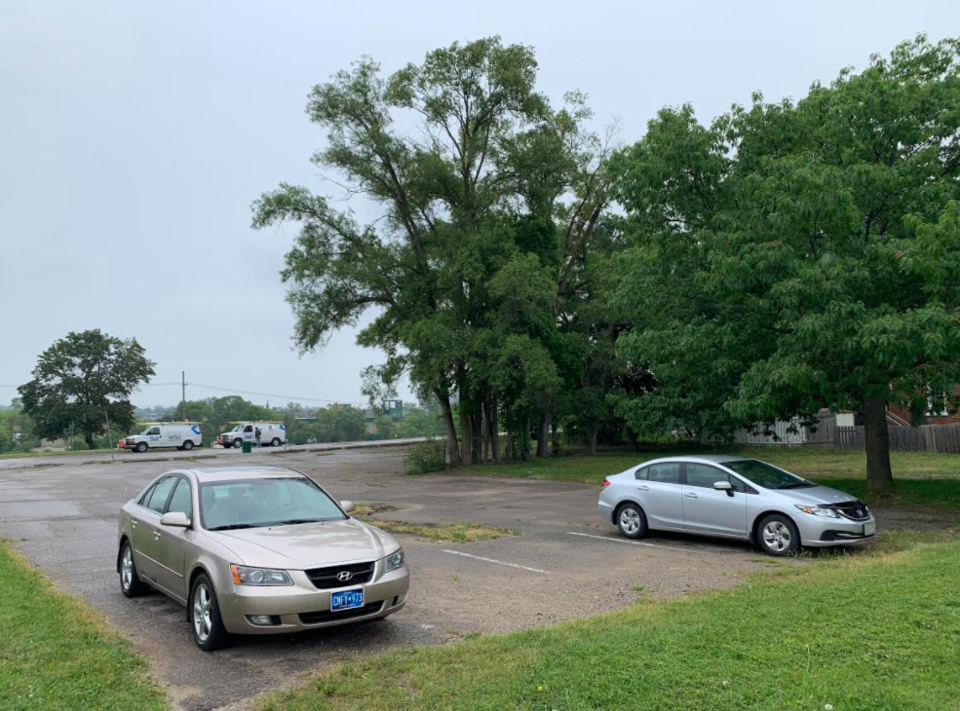Brock Park neighbourhood residents opposing a supportive, modular housing project on vacant Vespra Street property are proposing an alternative: a city park there.
Ann-Marie Quinn, who lives on nearby Sanford Street, expressed that option in a letter to Barrie councillors.
“This area is the connecting point between downtown and Allandale, and I feel a more seamless approach would be in the best interest of the city as a whole, as with putting in a much-needed park,” she wrote.
It’s also being proposed that a park on the former fire station site be extended across Innisfil Street into Milligan's Pond, one of Barrie’s best-kept secrets.
Quinn even has a theme for a new park there.
“This neighbourhood was founded around the Barrie railway. Many of the homes were built by the railway for the workers at the Barrie station. I know this because I went to the (Simcoe County) archives a few years ago,” she said. “The park that we put in could have a tribute theme which celebrates the Barrie railway.
“Seems it falls in the shadow of Allandale, and could be brought to light. I think that would be a very appropriate thing to do to revive our heritage in this neighbourhood.”
The site being proposed — 65 Vespra St. along with 70 and 72 Victoria St. — is 1.49 acres in size.
City council has other plans for the property, however.
Last month, council approved adding $3 million to its 2021 budget for a supportive, modular housing project on Vespra Street. This decision comes with a number of conditions for this development — which is to build one-person, 450- to 500-square-foot, stackable housing units, each costing about $195,000, at the former Barrie fire hall site.
Coun. Keenan Aylwin, who represents this part of the city, likes the idea of more parkland in this area.
“I’m thankful that residents are engaging in the conversation about the future of the Brock Park neighbourhood. I agree that Audrey Milligan’s Pond could become a beautiful park area that serves the growing population in the downtown area,” he said. “Currently, it is environmental protection land and not officially a park, so it doesn’t currently receive the maintenance and amenities that parks do.
“I’m hopeful that we can begin the conversation around adding parkland in this under-served area,” Aylwin added. “I still believe the Vespra site has a lot of potential for social housing development, and I want to stress again the future opportunities for engagement with the neighbourhood on that potential project. I’m looking forward to collaborating with the neighbourhood on these issues.”
But Quinn’s letter says the supportive, modular housing project could change her neighbourhood, and not for the better.
“We as a community fear that there will be an erosion/modification to our community if there are newly introduced homeless residents brought to this area,” she said. “We fear for the safety of our children. We fear for the security of our homes and, most importantly, ourselves. It just seems to be overlooked that the culture of our neighbourhood may be threatened by this proposal, as well as our safety and freedom.
“I beg you to please respect us and our culture in proceeding forward with any further considerations to care for the homeless.”
Quinn said she’s lived in the Brock Park neighbourhood for the past 12 years, and loves it. She says there is a great sense of community, that people not only know each other, but help each other.
“This is a safe and peaceful place to be. We are a true community. This is our culture, and we are fortunate to have it,” she said. “Right now, it seems like our culture is not well understood. Or perhaps it is just not being considered as much as it should be in the decision-making around the Vespra Street site. Perhaps it is easy to lose sight of all that is important when dealing with such a large project.”
The $3-million cost of the supportive, modular housing project, including a $500,000 estimate for soil remediation (capped at $750,000), will be funded from debt, with final amounts to be determined through request-for-proposal planning and approval of a building proposal, with the annual debt servicing costs to be paid from the reinvestment reserve and that money be leveraged to access other funding opportunities.
After consulting with the County of Simcoe and social agencies dealing with homelessness, and before issuing the request for proposal, community and corporate services general manager Dawn McAlpine will report back to Barrie councillors on the target residents for the project, subsidy sources, key project parameters and how the city’s funding can be leveraged to access other funding opportunities.
City staff will then issue a call for proposals for a service provider to construct and manage the project, and operate the housing units.
Staff will also hold a neighbourhood meeting with the successful proponent and area residents to get feedback to help the overall implementation of the project.
What council is proposing is a social service facility and under Barrie’s Zoning Bylaw that is allowed on land zoned institutional. A social services facility, as defined in the bylaw, provides social services support which may include counselling, recreational facilities, education and training, places of assembly, temporary lodging, serving meals and offering day-care.
The Ontario government defines supportive housing as a combination of housing assistance and supports that enable people to live as independently as possible in their community.




